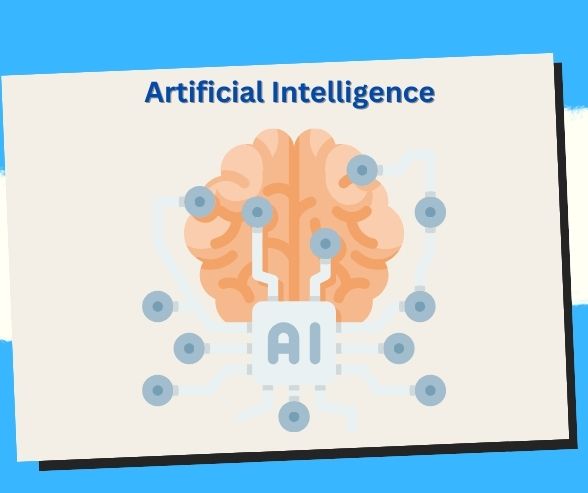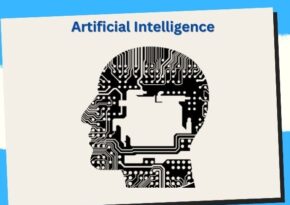
The Ethical Challenges of Personal Data in AI: What You Need to Know
Explore the ethical considerations surrounding the use of personal data in AI, and learn how to balance innovation with privacy.
Ethical Use of Personal Data in AI

In today’s rapidly evolving digital world, the intersection of artificial intelligence (AI) and personal data presents both incredible opportunities and significant ethical challenges. AI systems are powered by data, and personal data, in particular, plays a crucial role in enhancing the capabilities of these systems. However, the ethical use of personal data in AI is paramount to ensure trust, privacy, and fairness. In this guide, we will delve into the key principles, challenges, and best practices for the ethical use of personal data in AI.
Understanding Personal Data in AI 

What is Personal Data?
Personal data refers to any information that can be used to identify an individual, either directly or indirectly. This includes:
- Names and addresses
- Email addresses and phone numbers
- Financial information
- Health records
- Online identifiers like IP addresses
- Biometric data like fingerprints or facial recognition
The Role of Personal Data in AI
AI systems leverage vast amounts of data to learn and make decisions. Personal data can enhance AI applications in various domains, such as:
- Healthcare: Improving diagnostics and personalized treatments
- Finance: Enhancing fraud detection and personalized financial advice
- Marketing: Enabling personalized recommendations and targeted advertising
- Security: Strengthening identity verification and threat detection
However, collecting and using personal data comes with significant responsibilities and ethical considerations.
Ethical Principles for Using Personal Data in AI 

1. Transparency and Accountability 

Transparency in AI systems involves providing clear information about how personal data is collected, used, and shared. Individuals should be informed about:
- Data collection methods: How and what data is being collected
- Purpose of data use: Why the data is being collected and how it will be used
- Data sharing practices: Who will have access to the data and why
Accountability means that organizations and developers must be responsible for the ethical handling of personal data. This includes:
- Implementing robust data governance frameworks
- Conducting regular audits and assessments
- Establishing clear lines of accountability
2. Privacy and Data Protection 

Privacy is a fundamental human right. Protecting personal data involves:
- Minimizing data collection: Only collect the data that is absolutely necessary
- Anonymization and pseudonymization: Use techniques to make personal data non-identifiable whenever possible
- Implementing strong security measures: Use encryption and other technologies to protect data from unauthorized access and breaches
3. Fairness and Non-Discrimination 

AI systems must be designed to be fair and non-discriminatory. This involves:
- Avoiding biased data: Ensure that the data used to train AI models is representative and unbiased
- Regularly testing for biases: Conduct ongoing assessments to identify and mitigate any biases in AI systems
- Ensuring equitable outcomes: Strive to create AI applications that benefit all individuals fairly and do not disproportionately impact certain groups
4. Consent and Control 

Individuals should have control over their personal data. This includes:
- Obtaining informed consent: Clearly explain to individuals how their data will be used and obtain their explicit consent
- Providing data access and correction rights: Allow individuals to access their data and make corrections if necessary
- Enabling data deletion: Give individuals the right to request the deletion of their personal data
Challenges in the Ethical Use of Personal Data in AI 

1. Data Bias and Fairness 

One of the significant challenges is ensuring that AI systems do not perpetuate or exacerbate biases present in the data. Biases can lead to unfair treatment of individuals or groups, especially in critical areas such as hiring, lending, and law enforcement.
2. Privacy and Security Risks 

The collection and storage of personal data pose privacy and security risks. Data breaches and unauthorized access can lead to significant harm, including identity theft, financial loss, and reputational damage.
3. Consent and Data Sovereignty 

Obtaining meaningful consent can be challenging, especially when individuals are not fully aware of how their data will be used. Data sovereignty issues also arise when data crosses borders, subjecting it to different legal and regulatory frameworks.
4. Transparency and Explainability 

AI systems, especially those that use complex algorithms like deep learning, can be difficult to explain. This lack of transparency can make it hard to understand how decisions are made and hold systems accountable.
Best Practices for Ethical Use of Personal Data in AI 

1. Implement Data Minimization Principles 

Only collect and use the minimum amount of data necessary to achieve your objectives. This reduces the risk of data misuse and enhances privacy.
2. Adopt Privacy by Design 

Incorporate privacy considerations into the design and development of AI systems from the outset. This includes:
- Embedding privacy features in the system architecture
- Conducting privacy impact assessments
- Using privacy-preserving technologies like differential privacy and federated learning
3. Ensure Data Anonymization and Encryption 

Use techniques such as anonymization and encryption to protect personal data. Anonymization removes identifying information, while encryption secures data from unauthorized access.
4. Establish Robust Data Governance Frameworks 

Create and maintain comprehensive data governance frameworks that outline policies and procedures for ethically handling personal data. This includes:
- Defining roles and responsibilities for data management
- Implementing data access controls and monitoring
- Ensuring compliance with relevant laws and regulations
5. Foster a Culture of Ethical AI Development 

Promote a culture that values ethical considerations in AI development. This involves:
- Providing ethics training for AI developers and stakeholders
- Encouraging interdisciplinary collaboration to address ethical issues
- Establishing ethical review boards to oversee AI projects
6. Enhance Transparency and Explainability 

Strive to make AI systems transparent and explainable. This includes:
- Providing clear and accessible explanations of AI decisions
- Ensuring that individuals understand how their data is used and processed
- Developing tools and techniques for interpreting complex AI models
7. Engage Stakeholders and the Public 

Engage a diverse range of stakeholders, including individuals whose data is being used, to understand their concerns and perspectives. Public engagement can help build trust and ensure that AI systems are aligned with societal values.
8. Monitor and Evaluate AI Systems Continuously 

Continuously monitor and evaluate AI systems to ensure they comply with ethical standards. This involves:
- Conducting regular audits and assessments of data practices
- Implementing feedback mechanisms to identify and address issues
- Updating policies and practices in response to new challenges and developments
Benefits of Ethical Use of Personal Data in AI 

- Enhanced Trust and Transparency
- Ethical data practices foster trust between organizations and individuals, ensuring that data is collected and used transparently.
- Improved Data Quality and Integrity
- Adhering to ethical guidelines ensures that data is accurate, reliable, and protected from misuse or tampering.
- Compliance with Regulations and Standards
- Ethical data usage aligns with legal frameworks such as GDPR, reducing the risk of fines and legal actions.
- Increased Customer Satisfaction and Loyalty
- Ethical handling of personal data builds customer confidence and loyalty, leading to stronger brand relationships.
- Enhanced Innovation with Responsible AI
- Ethical practices encourage innovative uses of AI that respect privacy and promote positive social impact.
- Minimized Risk of Data Breaches and Misuse
- Ethical data management practices reduce the risk of data breaches and the misuse of personal information.
- Improved Decision-Making Accuracy
- High-quality, ethically sourced data enhances the accuracy and fairness of AI-driven decisions.
- Promotion of Fairness and Equality
- Ethical AI practices help mitigate biases and promote fairness and equality in decision-making processes.
- Strengthened Brand Reputation and Integrity
- Companies that prioritize ethical data usage build a reputation for integrity and responsibility.
- Fostering Sustainable Business Practices
- Ethical data management contributes to sustainable business practices that benefit both the company and society.
Case Studies on Ethical Use of Personal Data in AI 

- Apple’s Commitment to User Privacy
- Apple has implemented robust privacy measures, such as on-device processing and differential privacy, to ensure user data is protected and used ethically.
- Google’s AI Principles for Ethical Development
- Google has established a set of AI principles that guide the ethical development and use of AI technologies, emphasizing fairness, accountability, and privacy.
- Microsoft’s AI for Accessibility Initiative
- Microsoft uses AI to improve accessibility for people with disabilities, ensuring that personal data is used to empower and support individuals in an ethical manner.
- IBM’s Watson and Healthcare Data Security
- IBM’s Watson Health ensures the ethical use of patient data by implementing stringent data protection measures and focusing on patient consent.
- Facebook’s Approach to Data Privacy and Ethics
- Facebook has taken steps to enhance data privacy and ethics, including the introduction of tools for users to control their data and the establishment of ethical AI guidelines.
- Netflix’s Ethical Data Practices for Personalization
- Netflix uses ethical data practices to personalize content recommendations while ensuring user data is protected and used transparently.
- Amazon’s Commitment to Ethical AI and Data Use
- Amazon has committed to ethical AI practices, including transparent data usage policies and investments in privacy-preserving technologies.
- Tesla’s Ethical Use of Data in Autonomous Vehicles
- Tesla prioritizes the ethical use of data in its autonomous vehicle technologies, focusing on data security, transparency, and user consent.
- Salesforce’s Data Ethics in Customer Relationship Management (CRM)
- Salesforce emphasizes ethical data practices in CRM, ensuring that customer data is handled with integrity and respect for privacy.
- IBM’s Ethical AI Principles for Transparent Data Use
- IBM has developed ethical AI principles that promote transparency, fairness, and accountability in the use of personal data for AI development.
Key Takeaways from Ethical Use of Personal Data in AI 

- Ethical AI Practices Build Trust
- Adopting ethical AI practices is crucial for building and maintaining trust with users and stakeholders.
- Transparency is Essential for Data Integrity
- Clear and transparent data practices ensure that personal data is handled responsibly and ethically.
- Compliance with Regulations Protects Businesses
- Adhering to legal frameworks and regulations protects businesses from legal risks and enhances their reputation.
- Ethical Data Use Enhances Innovation
- Responsible data practices encourage innovation that benefits society while respecting individual rights.
- Customer Satisfaction is Tied to Ethical Data Practices
- Ethical handling of personal data leads to higher customer satisfaction and loyalty.
- Fairness and Equality are Central to Ethical AI
- Ethical AI practices help reduce biases and promote fairness and equality in AI-driven decision-making.
- Data Security is Critical to Ethical AI
- Protecting personal data from breaches and misuse is essential for maintaining ethical AI practices.
- Sustainable Business Practices Benefit All
- Ethical data management contributes to sustainable business practices that positively impact society and the environment.
- Transparency and Accountability are Non-Negotiable
- Companies must be transparent and accountable in their data practices to maintain ethical standards.
- Continuous Improvement is Key to Ethical AI
- Ongoing evaluation and improvement of data practices are necessary to keep up with evolving ethical standards and technologies.
Frequently Asked Questions (FAQs) on Ethical Use of Personal Data in AI 

- What is the ethical use of personal data in AI?
- The ethical use of personal data in AI involves collecting, processing, and analyzing data in ways that respect individuals’ privacy and rights, ensure data security, and promote fairness and transparency.
- Why is ethical data usage important in AI?
- Ethical data usage is crucial for maintaining trust, ensuring compliance with regulations, and promoting fair and unbiased AI-driven decisions.
- How can organizations ensure the ethical use of personal data?
- Organizations can ensure ethical data use by implementing robust data protection policies, obtaining informed consent, and adhering to legal and ethical guidelines for data handling.
- What are some common ethical concerns with AI and personal data?
- Common concerns include data privacy violations, biased decision-making, lack of transparency, and the potential misuse of personal information.
- How do regulations like GDPR impact ethical data use in AI?
- Regulations like GDPR provide a legal framework that mandates ethical data practices, ensuring that personal data is collected, processed, and used responsibly and transparently.
- What role does transparency play in ethical AI?
- Transparency is essential in ethical AI as it ensures that individuals understand how their data is used and allows for accountability in AI decision-making processes.
- Can ethical data use enhance AI innovation?
- Yes, ethical data use can enhance AI innovation by fostering trust, encouraging responsible data sharing, and promoting the development of AI technologies that benefit society.
- How can companies protect personal data in AI applications?
- Companies can protect personal data by implementing strong security measures, using privacy-preserving technologies, and ensuring compliance with data protection regulations.
- What are the consequences of unethical data use in AI?
- Unethical data use can lead to legal penalties, loss of trust, data breaches, and reputational damage, negatively impacting both the company and individuals.
- How can individuals ensure their data is used ethically in AI?
- Individuals can ensure ethical data use by being informed about data privacy rights, choosing services with transparent data policies, and actively managing their data privacy settings.
Conclusion: Navigating the Ethical Landscape of AI and Personal Data 

The ethical use of personal data in AI is a complex but crucial endeavor. By adhering to principles of transparency, privacy, fairness, and accountability and by implementing best practices, organizations can harness the power of AI while safeguarding individual rights and building trust. As AI continues to evolve, it is essential to remain vigilant and proactive in addressing ethical challenges and ensuring that AI systems are developed and used in a manner that benefits all of society.
Embracing these ethical considerations will not only help mitigate risks but also pave the way for a more equitable and trustworthy AI-driven future. Let’s commit to using personal data responsibly and ethically, fostering a world where technology enhances human potential without compromising our values and rights.
Stay informed, stay ethical, and let’s shape a better future with AI!
Thank you for reading this guide on the ethical use of personal data in AI. If you found it helpful, please share it with your network and help spread awareness about the importance of ethical AI practices.
Key Phrases
- Ethical use of personal data in AI
- AI data privacy ethics
- Responsible AI data practices
- AI and personal data protection
- Ethics in AI Data Management
- Privacy and AI ethics
- Ethical guidelines for AI data use
- AI personal data governance
- Ethical AI development
- Personal data ethics in AI
Best Hashtags
- #AIethics
- #DataPrivacy
- #EthicalAI
- #PersonalDataProtection
- #AIEthics
- #DataEthics
- #PrivacyInAI
- #ResponsibleAI
- #AIRegulation
- #EthicalTech
Save/Share this story with QR CODE
Disclaimer
This article is for informational purposes only and does not constitute endorsement of any specific technologies or methodologies and financial advice or endorsement of any specific products or services.
 Need to get in touch?
Need to get in touch?

We appreciate your reading. 
1.) 

Your DONATION will be used to fund and maintain NEXTGENDAY.com
Subscribers in the Philippines can make donations to mobile number 0917 906 3081, thru GCash.
3.) 
4.) 
AFFILIATE PARTNERS

World Class Nutritional Supplements - Buy Highest Quality Products, Purest Most Healthy Ingredients, Direct to your Door! Up to 90% OFF.
Join LiveGood Today - A company created to satisfy the world's most demanding leaders and entrepreneurs, with the best compensation plan today.



















































 Putting Users First: The Art of Crafting AI for Well-Being
Putting Users First: The Art of Crafting AI for Well-Being